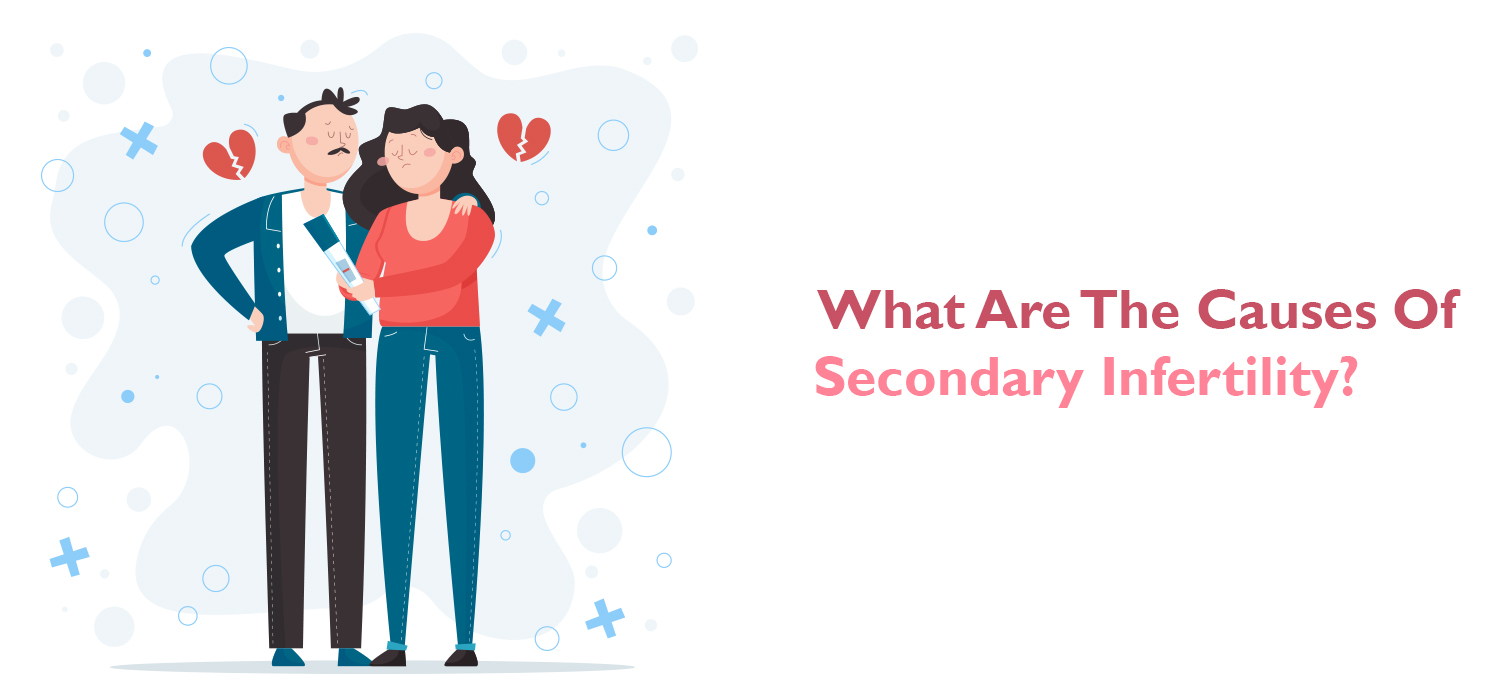Secondary infertility is the inability to have a baby or carry a pregnancy to term after having a baby in the first place. There must have been a previous pregnancy without fertility drugs or treatments like in vitro fertilization for this condition to be classified as "secondary infertility." It is common for secondary infertility to be diagnosed after six months to a year of infertility. Patients and couples who experience recurrent pregnancy loss can conceive but cannot carry the pregnancy to term.
Women's health issues
Infertility in women has a wide range of causes.
Polycystic Ovaries Syndrome
PCOS, the most common cause of female infertility, is characterized by irregular or absent ovulation. An egg is released during an ovulation cycle, which typically occurs once per menstrual cycle.
About 10% of women of childbearing age have PCOS. Ovarian cysts, which are fluid-filled sacs, can form as a result.
Endometriosis
Endometriosis is characterized by the growth of tissue resembling the uterine lining outside the uterus.
Endometriosis is a mystery, but we know it can affect fertility in various ways. Inflammation caused by endometriosis can harm the quality of the eggs. There is a possibility that scar tissue will form as a result, which may alter or change the reproductive anatomy and make it more difficult for the serum to reach the egg. Implantation can be hampered by endometriosis as well.
General Infections
An infection of the female reproductive system known as a pelvic inflammatory disease (PID) can be caused by Chlamydia and Gonorrhoea. According to research, one out of every eight women with a history of PID will have trouble getting pregnant.
Insufficiency of the primary ovary
After 40, a woman's menstrual cycle becomes irregular due to primary ovarian insufficiency (POI). Only 5–10% of those suffering from POI can conceive and deliver a healthy baby, but most of those suffering from the condition struggle to conceive in the first place.
This condition may be caused by chemotherapy, radiation to the pelvis, and various other diseases, such as cancer.
Homocystinuria
Hypothalamic and pituitary gland dysfunction is the most common cause of hormonal imbalances. Because they produce hormones essential to the ovaries' proper operation, problems with this organ could impact the reproductive system. A malfunction in this area may prevent ovulation in a female.
Men's Health Issues
The following conditions can cause male infertility.
Disrupting ejaculatory or testicular functions
A wide range of factors can cause this. They consist of:
• Testicular injury, which may result in a reduction in sperm production
• Sperm quality and quantity can be affected by varicocele, a condition in which the testicle has abnormally large veins.
• Excessive alcohol consumption and smoking are two examples of bad lifestyle choices.
• Treatment with radiation, chemotherapy, or the surgical removal of one or both testicles for cancer
Imbalances in the hormones
The hypothalamus and pituitary glands produce hormones that control the function of the testicles. Damage to these structures and alterations in hormone production is possible due to various conditions that affect them. Having low or no sperm count is possible as a result.
Aging
Male infertility can be caused by a variety of factors, including the effects of aging. The following are a few examples:
• Excessive growth of the prostate.
• Hormone production has decreased.
• Diabetes-related health problems in their later stages.
• As well as conditions that affect older men, such as irritable male syndrome.
Conclusion
Anyone, including you, your partner, and your loved ones, can be affected by secondary infertility. Talk to your doctor about any of your concerns, difficulties, and goals.


